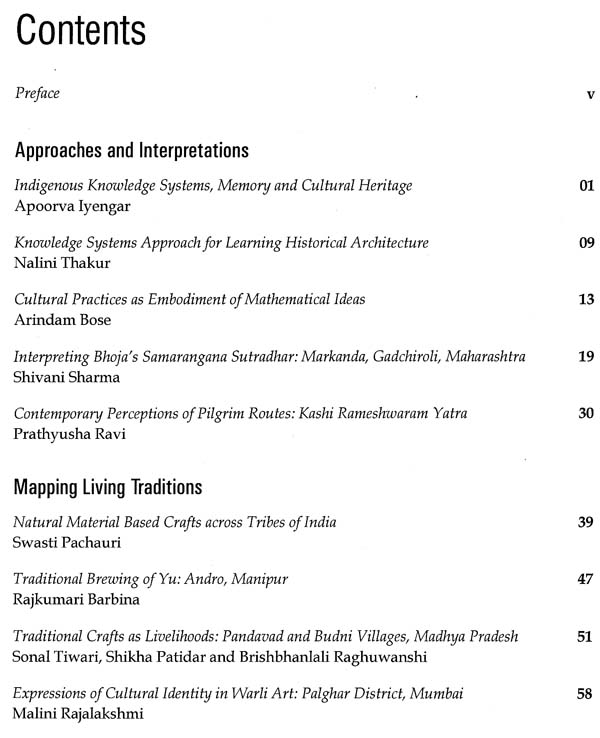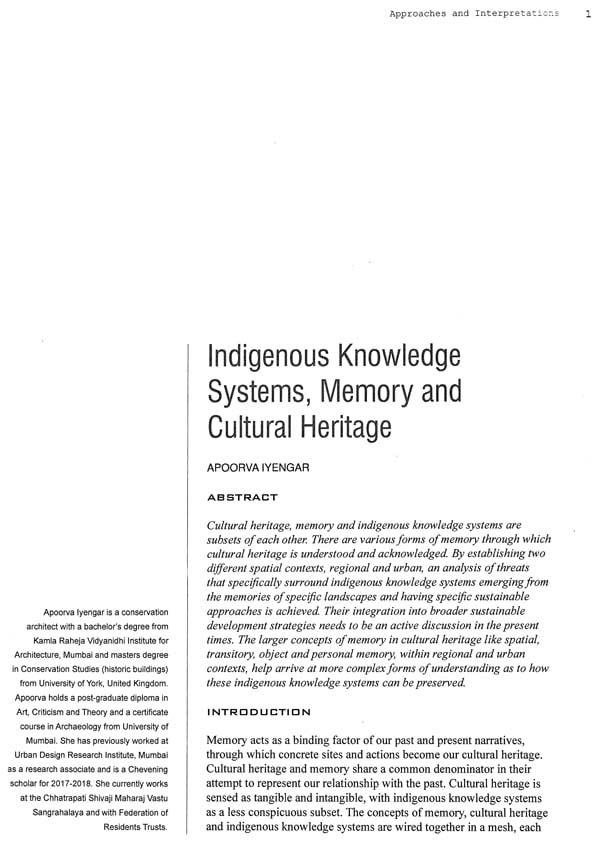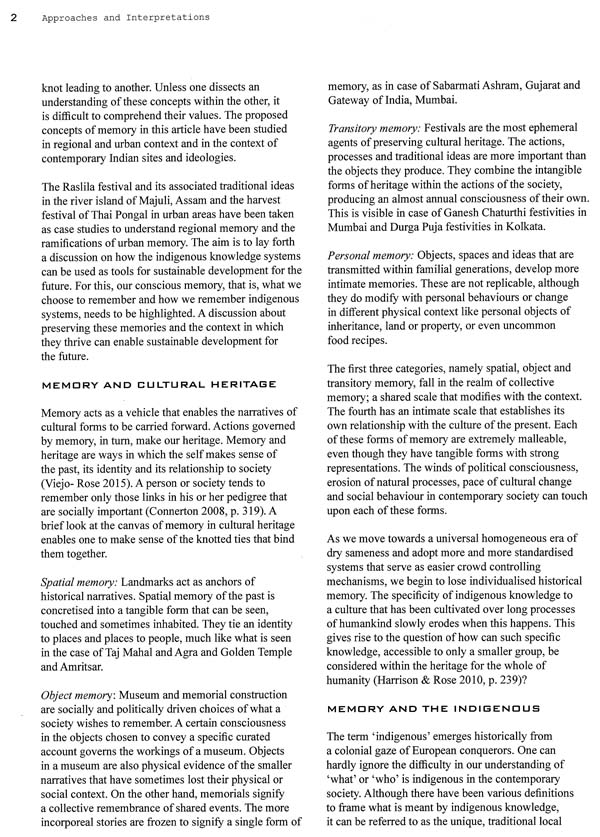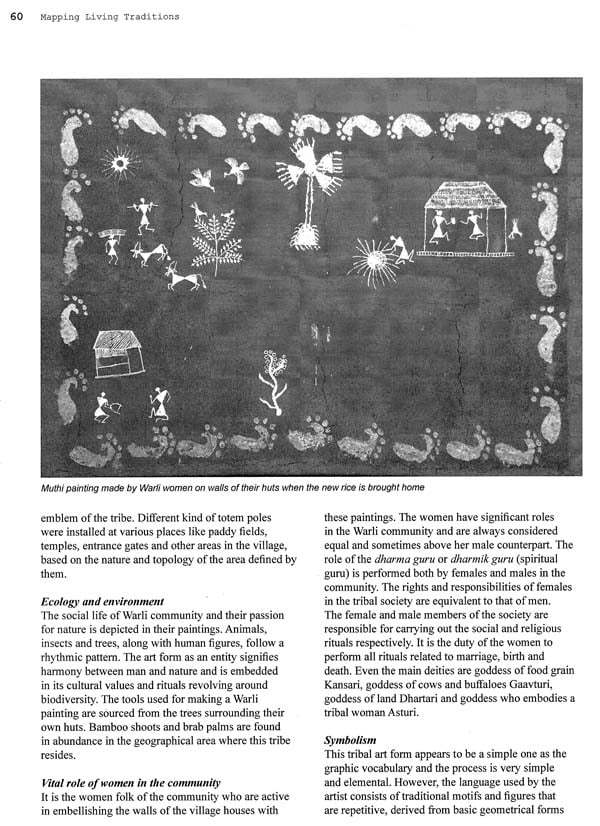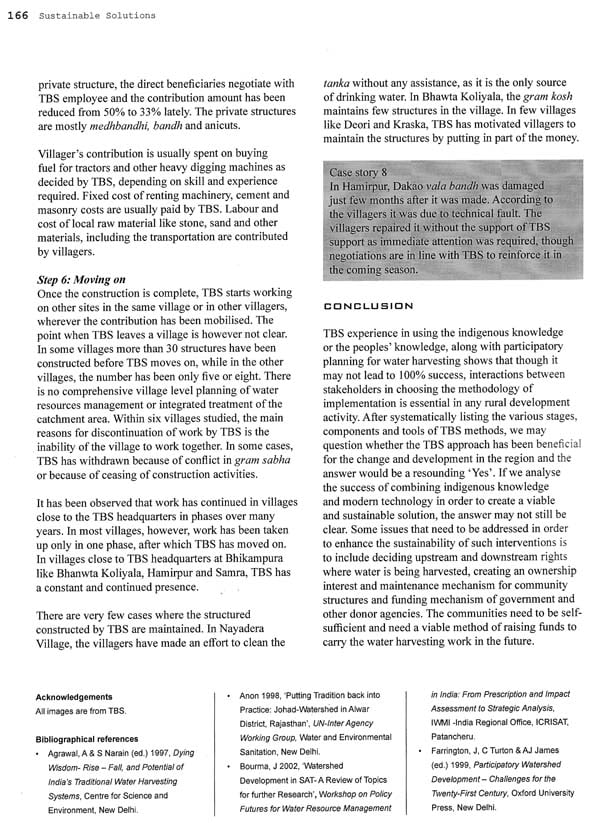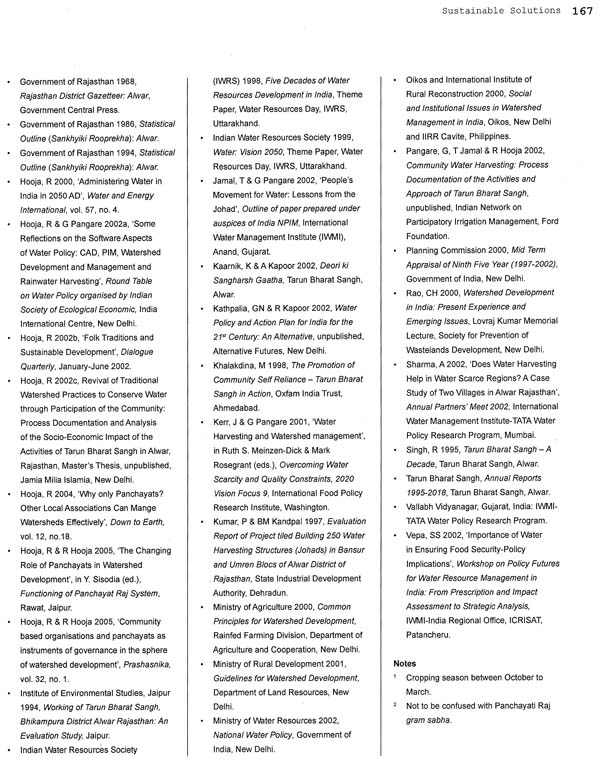
Traditional Knowledge Systems and Cultural Heritage
Book Specification
| Item Code: | NAY910 |
| Author: | Ed: Shikha Jain, Parul G Munjal and Somya Joshi |
| Publisher: | Aryan Books International |
| Language: | English |
| Edition: | 2020 |
| ISBN: | 9788173056413 |
| Pages: | 167 (Throughout B/W Illustrations) |
| Cover: | HARDCOVER |
| Other Details | 11.50 X 9.00 inch |
| Weight | 1.03 kg |
Book Description
The collection focuses on highlighting a diverse spectrum of living traditions such as crafts, dance, art, beverages and building traditions, along with contemporary expressions of knowledge systems that have traversed over time to take on new forms and embedded meanings in the traditions, rituals and activities. The discourse is taken forward through coverage of initiatives that help sustain traditional building techniques, industry, healing systems and water structures.
As a whole, this compilation endeavours to cover various expressions of indigenous knowledge systems, positioning these between past, present and future, while viewing their existence and applications from multiple perspectives.
Specialising as an architect from School of Planning and Architecture (SPA), Delhi with a Masters in Preservation and Community Design from Kansas State University, US and a doctorate in architectural history from PRASADA, De Monfort University, UK, she has several books and published papers in national and international journals to her credit. She has been the Chief Editor of Context: Built, Living and Natural since its inception in 2004.
Parul G Munjal is an Associate Professor at Sushant School of Art and Architecture, Ansal University, Gurgaon and heads the Master of Architecture in Built Heritage programme at the School. Through her association with DRONAH as Senior Conservation Architect, she worked on a number of research based projects including preparation of World Heritage Dossiers, along with plans for conservation, management and interpretation of heritage sites in India. She is currently pursuing research on built heritage of small and medium towns of Gurgaon District, Haryana, with a focus on community based approaches, as a part of her doctoral studies.
Somya Johri is a conservation architect from School of Planning and Architecture, New Delhi. With DRONAH, she has been involved with historical research, preparation of conservation and management plans of heritage sites, heritage impact assessment of industrial sites in India and preparation of World Heritage Dossiers. She has also worked on Project 'Mausam', a Ministry of Culture project. She is currently working as an Assistant Editor for Context: Built, Living and Natural.
There is representation of an enlightening array of approaches and interpretations in the first section of the volume. Shivani Sharma uses a historical text to re-envision the damaged temples at Markanda in Maharashtra, demonstrating interpretive methods and their application in getting a glimpse into the past. Moving on to more contemporary phenomena, Iyengar examines the interconnections between memory, cultural heritage and knowledge systems, through a study of urban and regional festivals, while Ravi investigates the roots of contemporary constructs of pilgrimage, revealing layers of reinterpretations. Both are looking at contemporary expressions of knowledge systems that have traversed over time to take on new forms and reconstructing the embedded meanings in the traditions, rituals and activities.
Nalini Thakur shares her extensive experience of teaching and learning through the knowledge systems approach, a particularly useful tool for studying historical architecture. She narrates how the tool enables mapping and understanding buildings as cultural products in a contextual and holistic manner, an essential methodology that takes away from the dominance of the 'visual'. Bose lays down another perspective on the object of cultural practices, as he introduces ethno mathematical studies that unveil mathematical ideas embedded in the cultural practices to facilitate the learning process. These approaches not only examine and interpret the cultural products, but also propose pedagogical methodologies that can pave the way for more research and revelations in the direction.
Through section two, a diverse spectrum of living traditions are highlighted such as crafts, dance, art, beverages and building traditions, as the authors document and analyse these from various lenses. The discourse is taken forward in section three where initiatives that help sustain traditional building techniques, industry, healing systems and water structures have been highlighted, through cases from Nepal, Himachal Pradesh, Karnataka and Rajasthan.
With this compilation, we traverse across various expressions of indigenous knowledge systems, aiming to position these between past, present and future, while viewing these from plural lenses and finding embedded meanings that lie beneath the surface. We hope that this helps in building a nuanced perspective towards cultural expressions around us, where these are seen as processes rather than products.
Book's Contents and Sample Pages
